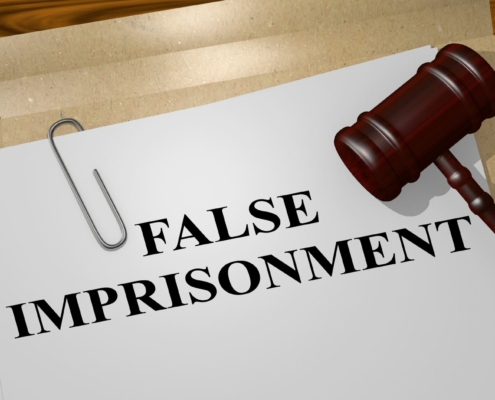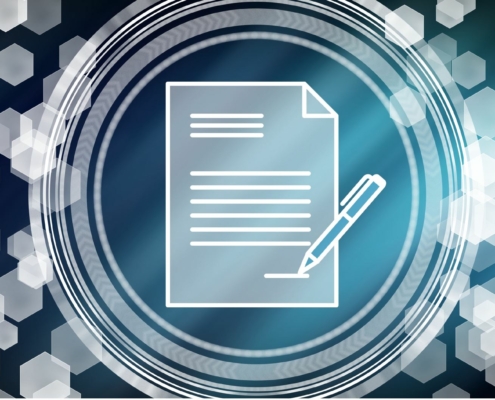What is an ENE hearing?
An Early Neutral Evaluation (ENE) in court is a confidential and voluntary process aimed at facilitating quick dispute resolution in custody, parenting time (visitation), and financial matters. The objectives of Early Neutral Evaluation (ENE) are to:
- Identify and clarify the main issues in dispute.
- Improve direct communication between the parties regarding their claims and supporting evidence.
- Assist with discovery and motion planning or the informal exchange of key information.
- Provide a neutral expert’s assessment of the case’s merits.
- Give clients and lawyers a “reality check.”
- Facilitate settlement discussions when requested by the parties.ENE aims to position the case for early resolution through settlement, dispositive motion, or trial. It may serve as a cost-effective substitute for formal discovery and pretrial motions. Although settlement is not the primary goal of ENE, the process can lead to settlement.
What is the difference between mediation and ENE?
Mediation is a process where a neutral third party helps disputing parties negotiate a mutually acceptable agreement. The mediator facilitates communication and assists in identifying interests and generating options, but does not provide an evaluation of the case.
Early Neutral Evaluation (ENE) involves a neutral expert who assesses the merits of the case and provides an evaluation. The evaluator offers a reality check on the likely outcomes, helping to clarify the issues and promote settlement discussions, but may also assist in procedural planning if needed.
What are the disadvantages of neutral evaluation?
Early Neutral Evaluation (ENE) has some disadvantages. The evaluation may be lengthy and filled with caveats, reducing its practical value. A losing party might ignore an unfavorable decision, arguing that it was not properly considered and that a trial judge, with full evidence, will reach a different conclusion. Additionally, ENE adds extra costs to cases that proceed to court or arbitration. In situations where a final resolution likely requires a court hearing, the benefits of ENE may be questionable.
What is an ENE process?
The evaluator, an experienced attorney with expertise in the case’s subject matter, hosts an informal meeting of clients and counsel where:
- Each side, through counsel, clients, or witnesses, presents evidence and arguments supporting its case without adherence to the rules of evidence and without direct or cross-examination of witnesses.
- The evaluator identifies areas of agreement, clarifies and focuses the issues, and encourages procedural and substantive stipulations.
- The evaluator privately writes an evaluation that includes an estimate of the likelihood of liability and the dollar range of damages where feasible, an assessment of the strengths and weaknesses of each party’s case, and the reasoning supporting these assessments.
- The evaluator offers to present the evaluation to the parties, who may then request to hear it, which must be presented if requested, or postpone hearing the evaluation to engage in settlement discussions facilitated by the evaluator, often in separate meetings with each side, or conduct focused discovery or make additional disclosures.
- If settlement discussions do not occur or resolve the case, the evaluator may help the parties devise a plan for sharing additional information and/or conducting key discovery to facilitate meaningful settlement discussions, position the case for resolution by motion or trial, help the parties realistically assess litigation costs, and/or determine whether follow-up to the session would contribute to case development or settlement.
Refer to ADR LR 5-11.
What is the cost for the ENE?
- Counsel or parties are far apart in their views on the law and/or value of the case.
- The case involves technical or specialized subject matter requiring a neutral with expertise.
- Case planning assistance would be useful.
- Communication across party lines (about merits or procedure) could be improved.
- Equitable relief is sought and parties might agree on the terms of an injunction or consent decree with the aid of a neutral expert.
What documents has to be submitted to the court before the ENE?
Counsel exchange and submit written statements to the evaluator at least 10 days before the ENE session. ADR Local Rule 5-9 lists special requirements for intellectual property cases. The statements are not filed with the court.
Refer to ADR LR 5-8.
Who attends the ENE in court?
The following individuals are required to attend in person:
- clients with settlement authority and knowledge of the facts,
- the lead trial attorney for each party,
- insurers of parties, if their agreement is necessary for a settlement.
Requests to attend by phone, rather than in person, will be granted only under extraordinary circumstances and must be made to the ADR Magistrate Judge. Clients are strongly encouraged to participate actively in the ENE session.
Refer to ADR LR-5-10.
Who conducts the ENE in court?
The court’s ADR staff appoints an ENE evaluator with expertise in the lawsuit’s substantive legal area, who is available and has no apparent conflict of interest. Parties may object to the evaluator if they perceive a conflict of interest.
All evaluators on the court’s panel have the following qualifications:
- Admission to the practice of law for at least 15 years.
- Experience with civil litigation in federal court.
- Expertise in the substantive law of the case.
- Training by the court.
- Some evaluators have also received the court’s mediation training.
Refer to ADR LR 2-5(b).
Can the ENE judge impose settlement?
The evaluator cannot impose a settlement and does not coerce parties into accepting any proposed terms. The parties’ rights to formal discovery, disclosure, and motion practice are fully preserved. The confidential evaluation is non-binding and is not shared with the trial judge. The parties may agree to a binding settlement. If no settlement is reached, the case remains on the litigation track.
Is the ENE confidential?
Communications made in connection with an ENE session generally cannot be disclosed to the assigned judge or anyone else not involved in the litigation, unless otherwise agreed.
Refer to ADR LR 5-4, ADR LR 5-5, and ADR LR 5-7.
What types of cases are best suited for an ENE with the court?
All civil cases where the parties are represented by counsel are eligible if the court has an available evaluator with appropriate subject matter expertise. Particularly suitable cases include those where:
- counsel or parties are far apart in their views on the law and/or value of the case,
- the case involves technical or specialized subject matter requiring a neutral with expertise,
- case planning assistance would be useful,
- communication across party lines (about merits or procedure) could be improved,
- equitable relief is sought and parties might agree on the terms of an injunction or consent decree with the aid of a neutral expert.
Refer to ADR LR 5-2.







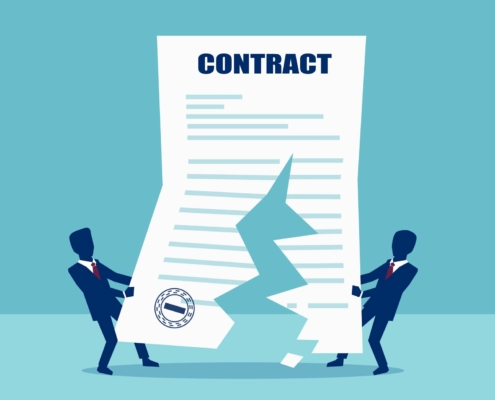




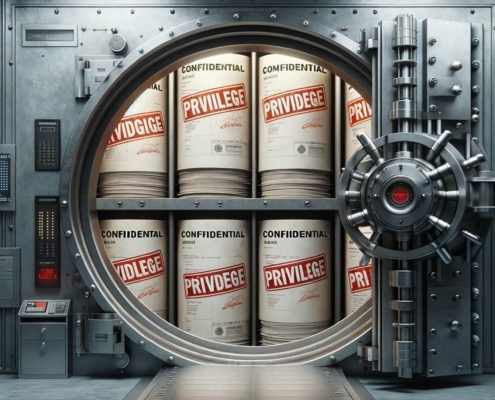

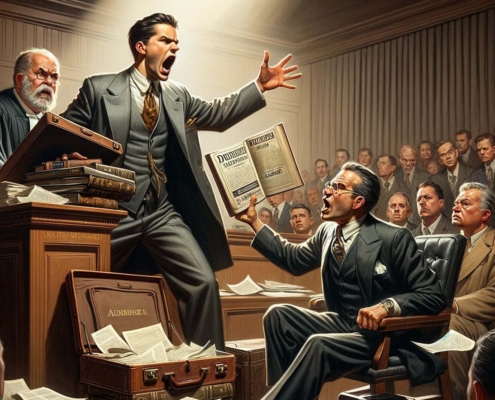

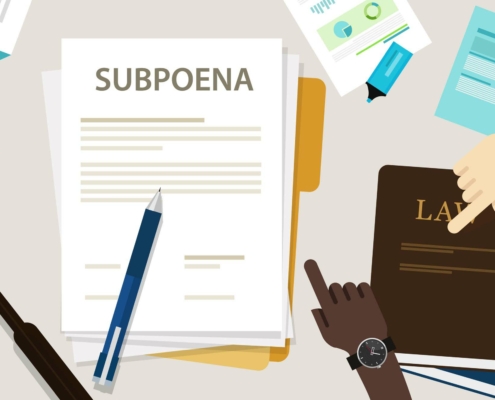
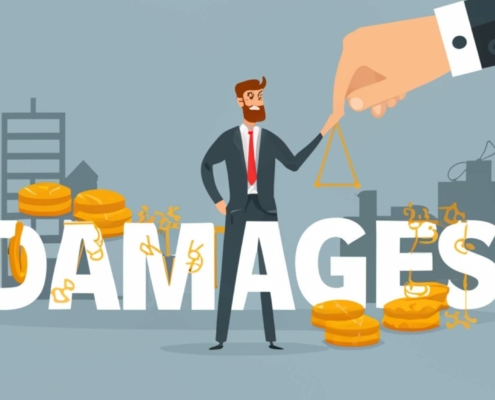
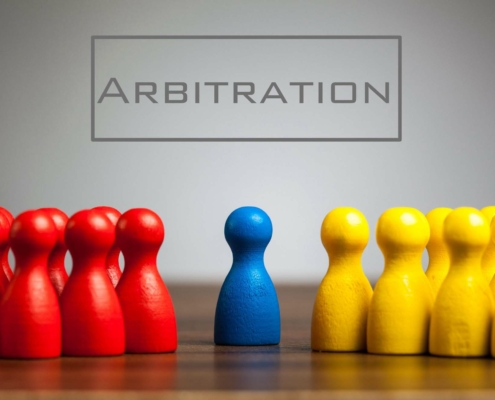
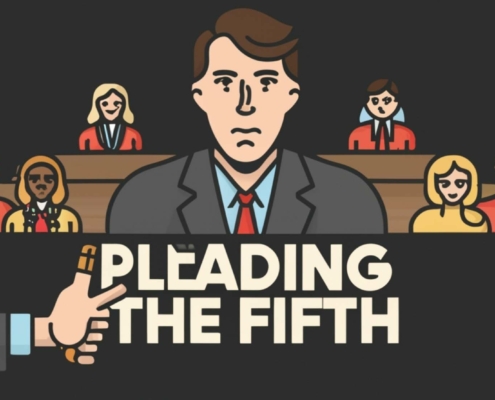
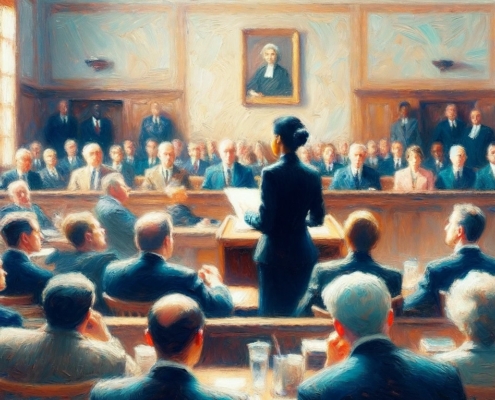

 By: Brad Nakase, Attorney
By: Brad Nakase, Attorney